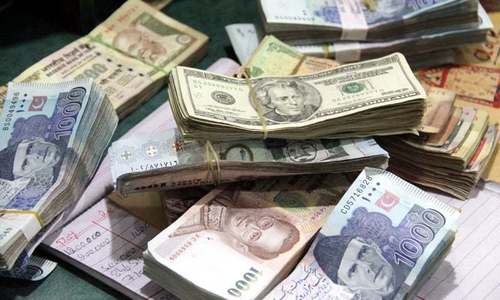The Telenor group on Tuesday announced the launch of Pakistan's first blockchain technology-based cross-border remittance service at an event in Islamabad, a press release issued by the telecommunications company said.
The service was introduced by Telenor Microfinance Bank, which offers Easypaisa, in partnership with Valyou of Malaysia, a financial technology company that provides remittances to underbanked communities.
Backed by blockchain technology developed by online payment platform Alipay, the service will enable Pakistani residents of Malaysia to send money home "instantly and securely" using Valyou — Telenor’s remittance service provider.
What is blockchain technology?
A blockchain is a list of records called blocks, which contain time stamps and transaction data that are linked and secured by using cryptography. It is virtually impossible to hack into or modify. Universally shared across the blockchain (in other words, a chain of blocks), everyone has a record of every transaction, hence there is no possibility of fraud or corruption. This removes middle-men, such as banks or regulatory authorities.
See: Learn about blockchain. And do it now.
The launch of the service marks a "major milestone in the country's journey to promote financial inclusion", the statement said, adding that the blockchain technology would "significantly boost the speed and efficiency of remittances from Malaysia to Pakistan".
According to the handout, the transaction fees of Alipay will be waived during the one-year trial period of the service, which will enable money transfers between the two countries at a competitive exchange rate.
All the information that is stored, shared or uploaded through the remittance platform will be encrypted with advanced protocols in order to protect the privacy of users, the statement claimed. This will ensure that all transfers are "highly secure and transparent".
Moreover, the blockchain technology will enable both senders and receivers to track their money throughout the process.
The plan for the remittance service was unveiled at the event in Islamabad, which was attended by State Bank of Pakistan (SBP) Governor Tariq Bajwa.
Offering his congratulations on the launch of the service, Bajwa said: "At around US $20 billion per year, international remittances are important from the perspective of overall macroeconomic stability and their positive spillover in improving [the] lives of millions of families. Home remittances contributed to over 6 per cent in GDP, equivalent to over 50pc of our trade deficit, 85pc of exports and over one-third of imports during [the] FY 2017-18.”
He added that the blockchain remittance service would complement efforts made by the government and SBP to promote the transfer of home remittances using formal financial channels.
“This puts Pakistan on the map of very few countries in the world that have launched international remittance using blockchain technology,” Bajwa said.
In December 2018, the SBP had reported that remittances from overseas Pakistanis jumped 12.5pc to $9.028 billion in the first five months of the fiscal year, from $8.021bn in the same period of the previous year.
According to the data, Malaysia had emerged as a new significant destination for remittances to Pakistan. During 5MFY19, inflows crossed half a billion dollars for the first time as they soared by 53.3pc to $616 million, from $401.78m in the same period last year.














































